-
Prologue
-
Market Introduction
-
Definition 18
-
Scope Of The Study 18
-
Market Structure 18
-
Market Insights
-
Market Insights 19
-
Research Methodology
-
Research Process 22
-
Primary Research 23
-
Secondary Research 24
-
Market Size Estimation 24
-
Forecast Model 25
-
List Of Assumptions 26
-
Market Dynamics
-
Introduction 27
-
Drivers 28
- Extensive Use Of Magnesium Chloride In Anti-Icing Application 28
- Health Benefits Associated With The Consumption Of Magnesium Chloride 29
- Use Of Magnesium Chloride In Cement Production 29
-
Restraints 31
- Availability Of Substitutes 31
-
Opportunity 32
- Growing Adoption Of Magnesium Chloride In Wastewater Treatment 32
-
Trends 32
- Benefits Associated With Magnesium Chloride Baths And Soaks 32
-
Market Factor Analysis
-
Supply Chain Analysis 33
- Market Concentration 33
- Key Industry Stakeholders 33
- Logistics Scenario 34
- Supply Chain Levels 34
-
Porter’s Five Forces Analysis 34
- Threat Of New Entrants 35
- Threat Of Rivalry 35
- Threat Of Substitutes 35
- Bargaining Power Of Suppliers 36
- Bargaining Power Of Buyers 36
-
Pricing Analysis 36
- Trade Analysis 36
-
Pricing Analysis, 2020-2028 (USD/TON) 39
-
Global Magnesium Chloride Market, By Form
-
Introduction 40
-
Liquid 41
-
Flakes 43
-
Global Magnesium Chloride Market, By Grade
-
Introduction 44
-
Industrial 45
-
Food And Pharmaceutical 46
-
Global Magnesium Chloride Market, By Application
-
Introduction 48
-
Deicing Agent 50
-
Dust Suppressant 51
-
Chemicals & Derivatives 51
-
Building Materials 52
-
Pharmaceuticals 54
-
Food & Feed 55
-
Others 56
-
Global Magnesium Chloride Market, By Region
-
Introduction 57
-
North America 61
- US 64
- Canada 66
-
Europe 69
- Germany 73
- France 75
- UK 78
- Italy 80
- Russia 83
- Spain 85
- The Netherlands 88
- Belgium 90
- Austria 93
- Rest Of Europe 95
-
Asia-Pacific 98
- China 101
- Japan 104
- India 106
- South Korea 109
- Australia And New Zealand 111
- Indonesia 114
- Rest Of Asia-Pacific 116
-
Latin America 119
- Mexico 122
- Brazil 125
- Argentina 127
- Est Of Latin America 130
-
Middle East And Africa 132
- Turkey 136
- UAE 138
- Saudi Arabia 141
- Israel 143
- South Africa 146
- Egypt 148
- Rest Of Middle East And Africa 151
-
Competitive Landscape
-
Introduction 154
-
Market Strategy Analysis 154
-
Company Profiles
-
Compass Minerals 155
- Company Overview 155
- Financial Overview 155
- Products Offered 156
- Key Developments 156
- SWOT Analysis 156
- Key Strategies 156
-
K+S KALI GmbH 157
- Company Overview 157
- Financial Overview 157
- Products Offered 158
- Key Developments 158
- SWOT Analysis 158
- Key Strategies 158
-
ICL 159
- Company Overview 159
- Financial Overview 159
- Products Offered 160
- Key Developments 160
- SWOT Analysis 160
- Key Strategies 160
-
Intrepid_x005F_x000B_ 161
- Company Overview 161
- Financial Overview 161
- Products Offered 162
- Key Developments 162
- SWOT Analysis 162
- Key Strategies 162
-
Merck KGaA 163
- Company Overview 163
- Financial Overview 163
- Products Offered 164
- Key Developments 164
- SWOT Analysis 164
- Key Strategies 164
-
Nedmag B.V. 165
- Company Overview 165
- Financial Overview 165
- Products Offered 165
- Key Developments 165
- SWOT Analysis 166
- Key Strategies 166
-
NikoMag 167
- Company Overview 167
- Financial Overview 167
- Products Offered 167
- Key Developments 167
- SWOT Analysis 167
- Key Strategies 167
-
DEUSA International GmbH 168
- Company Overview 168
- Financial Overview 168
- Products Offered 169
- Key Developments 169
- SWOT Analysis 169
- Key Strategies 169
-
Skyline Chemical Corporation 170
- Company Overview 170
- Financial Overview 170
- Products Offered 170
- Key Developments 170
- SWOT Analysis 170
- Key Strategies 170
-
HuiTai Investment Co., Ltd 171
- Company Overview 171
- Financial Overview 171
- Products Offered 171
- Key Developments 171
- SWOT Analysis 171
- Key Strategies 171
-
Conclusion
-
Key Findings 172
-
Industry Trends 172
-
List Of Tables
-
MARKET SYNOPSIS 17
-
LIST OF ASSUMPTIONS 26
-
EGYPT MAGNESIUM CHLORIDE MARKET, TRADE ANALYSIS, 2020 36
-
ALGERIA MAGNESIUM CHLORIDE MARKET, TRADE ANALYSIS, 2020 36
-
MOROCCO MAGNESIUM CHLORIDE MAKRET, TRADE ANALYSIS, 2020 37
-
TUNISIA MAGNESIUM CHLORIDE MARKET, TRADE ANALYSIS, 2020 37
-
NIGERIA MAGNESIUM CHLORIDE MARKET, TRADE ANALYSIS, 2020 37
-
SAUDI ARABIA MAGNESIUM CHLORIDE MARKET, TRADE ANALYSIS, 2020 37
-
ITALY MAGNESIUM CHLORIDE MARKET, TRADE ANALYSIS, 2020 38
-
UK MAGNESIUM CHLORIDE MARKET, TRADE ANALYSIS, 2020 38
-
GLOBAL MAGNESIUM CHLORIDE MARKET, BY REGION 39
-
GLOBAL MAGNESIUM CHLORIDE MARKET, BY FORM, 2020‒2027 (USD THOUSAND) 40
-
GLOBAL MAGNESIUM CHLORIDE MARKET, BY FORM, 2020‒2027 (TONS) 41
-
LIQUID: GLOBAL MAGNESIUM CHLORIDE MARKET, BY REGION, 2020‒2027 (USD THOUSAND) 42
-
LIQUID: GLOBAL MAGNESIUM CHLORIDE MARKET, BY REGION, 2020‒2027 (TONS) 42
-
FLAKES: GLOBAL MAGNESIUM CHLORIDE MARKET, BY REGION, 2020‒2027 (USD THOUSAND) 43
-
FLAKES: GLOBAL MAGNESIUM CHLORIDE MARKET, BY REGION, 2020‒2027 (TONS) 43
-
GLOBAL MAGNESIUM CHLORIDE MARKET, BY GRADE, 2020‒2027 (USD THOUSAND) 44
-
GLOBAL MAGNESIUM CHLORIDE MARKET, BY GRADE, 2020‒2027 (TONS) 45
-
INDUSTRIAL: GLOBAL MAGNESIUM CHLORIDE MARKET, BY REGION, 2020‒2027 (USD THOUSAND) 46
-
INDUSTRIAL: GLOBAL MAGNESIUM CHLORIDE MARKET, BY REGION, 2020‒2027 (TONS) 46
-
FOOD AND PHARMACEUTICAL: GLOBAL MAGNESIUM CHLORIDE MARKET, BY REGION, 2020‒2027 (USD THOUSAND) 47
-
FOOD AND PHARMACEUTICAL: GLOBAL MAGNESIUM CHLORIDE MARKET, BY REGION, 2020‒2027 (TONS) 47
-
GLOBAL MAGNESIUM CHLORIDE MARKET, BY APPLICATION, 2020‒2027 (USD THOUSAND) 48
-
GLOBAL MAGNESIUM CHLORIDE MARKET, BY APPLICATION, 2020‒2027 (TONS) 49
-
DEICING AGENT: GLOBAL MAGNESIUM CHLORIDE MARKET, BY REGION, 2020‒2027 (USD THOUSAND) 50
-
DEICING AGENT: GLOBAL MAGNESIUM CHLORIDE MARKET, BY REGION, 2020‒2027 (TONS) 50
-
DUST SUPPRESSANT: GLOBAL MAGNESIUM CHLORIDE MARKET, BY REGION, 2020‒2027 (USD THOUSAND) 51
-
DUST SUPPRESSANT: GLOBAL MAGNESIUM CHLORIDE MARKET, BY REGION, 2020‒2027 (TONS) 51
-
CHEMICALS & DERIVATIVES: GLOBAL MAGNESIUM CHLORIDE MARKET, BY REGION, 2020‒2027 (USD THOUSAND) 52
-
CHEMICALS & DERIVATIVES: GLOBAL MAGNESIUM CHLORIDE MARKET, BY REGION, 2020‒2027 (TONS) 52
-
BUILDING MATERIALS: GLOBAL MAGNESIUM CHLORIDE MARKET, BY REGION, 2020‒2027 (USD THOUSAND) 53
-
BUILDING MATERIALS: GLOBAL MAGNESIUM CHLORIDE MARKET, BY REGION, 2020‒2027 (TONS) 53
-
PHARMACEUTICALS: GLOBAL MAGNESIUM CHLORIDE MARKET, BY REGION, 2020‒2027 (USD THOUSAND) 54
-
PHARMACEUTICALS: GLOBAL MAGNESIUM CHLORIDE MARKET, BY REGION, 2020‒2027 (TONS) 54
-
FOOD & FEED: GLOBAL MAGNESIUM CHLORIDE MARKET, BY REGION, 2020‒2027 (USD THOUSAND) 55
-
FOOD & FEED: GLOBAL MAGNESIUM CHLORIDE MARKET, BY REGION, 2020‒2027 (TONS) 55
-
OTHERS: GLOBAL MAGNESIUM CHLORIDE MARKET, BY REGION, 2020‒2027 (USD THOUSAND) 56
-
OTHERS: GLOBAL MAGNESIUM CHLORIDE MARKET, BY REGION, 2020‒2027 (TONS) 56
-
GLOBAL MAGNESIUM CHLORIDE MARKET, BY REGION, 2020‒2027 (USD THOUSAND) 57
-
GLOBAL MAGNESIUM CHLORIDE MARKET, BY REGION, 2020‒2027 (TONS) 58
-
GLOBAL MAGNESIUM CHLORIDE MARKET, BY FORM, 2020‒2027 (USD THOUSAND) 58
-
GLOBAL MAGNESIUM CHLORIDE MARKET, BY FORM, 2020‒2027 (TONS) 59
-
GLOBAL MAGNESIUM CHLORIDE MARKET, BY GRADE, 2020‒2027 (USD THOUSAND) 59
-
GLOBAL MAGNESIUM CHLORIDE MARKET, BY GRADE, 2020‒2027 (TONS) 59
-
GLOBAL MAGNESIUM CHLORIDE MARKET, BY APPLICATION, 2020‒2027 (USD THOUSAND) 60
-
GLOBAL MAGNESIUM CHLORIDE MARKET, BY APPLICATION, 2020‒2027 (TONS) 60
-
NORTH AMERICA: MAGNESIUM CHLORIDE MARKET, BY COUNTRY, 2020‒2027 (USD THOUSAND) 61
-
NORTH AMERICA: MAGNESIUM CHLORIDE MARKET, BY COUNTRY, 2020‒2027 (TONS) 61
-
NORTH AMERICA: MAGNESIUM CHLORIDE MARKET, BY FORM, 2020‒2027 (USD THOUSAND) 61
-
NORTH AMERICA: MAGNESIUM CHLORIDE MARKET, BY FORM, 2020‒2027 (TONS) 62
-
NORTH AMERICA: MAGNESIUM CHLORIDE MARKET, BY GRADE, 2020‒2027 (USD THOUSAND) 62
-
NORTH AMERICA: MAGNESIUM CHLORIDE MARKET, BY GRADE, 2020‒2027 (TONS) 62
-
NORTH AMERICA: MAGNESIUM CHLORIDE MARKET, BY APPLICATION, 2020‒2027 (USD THOUSAND) 63
-
NORTH AMERICA: MAGNESIUM CHLORIDE MARKET, BY APPLICATION, 2020‒2027 (TONS) 63
-
US: MAGNESIUM CHLORIDE MARKET, BY FORM, 2020‒2027 (USD THOUSAND) 64
-
US: MAGNESIUM CHLORIDE MARKET, BY FORM, 2020‒2027 (TONS) 64
-
US: MAGNESIUM CHLORIDE MARKET, BY GRADE, 2020‒2027 (USD THOUSAND) 64
-
US: MAGNESIUM CHLORIDE MARKET, BY GRADE, 2020‒2027 (TONS) 65
-
US: MAGNESIUM CHLORIDE MARKET, BY APPLICATION, 2020‒2027 (USD THOUSAND) 65
-
US: MAGNESIUM CHLORIDE MARKET, BY APPLICATION, 2020‒2027 (TONS) 66
-
CANADA: MAGNESIUM CHLORIDE MARKET, BY FORM, 2020‒2027 (USD THOUSAND) 66
-
CANADA: MAGNESIUM CHLORIDE MARKET, BY FORM, 2020‒2027 (TONS) 67
-
CANADA: MAGNESIUM CHLORIDE MARKET, BY GRADE, 2020‒2027 (USD THOUSAND) 67
-
CANADA: MAGNESIUM CHLORIDE MARKET, BY GRADE, 2020‒2027 (TONS) 67
-
CANADA: MAGNESIUM CHLORIDE MARKET, BY APPLICATION, 2020‒2027 (USD THOUSAND) 68
-
CANADA: MAGNESIUM CHLORIDE MARKET, BY APPLICATION, 2020‒2027 (TONS) 68
-
EUROPE: MAGNESIUM CHLORIDE MARKET, BY COUNTRY, 2020‒2027 (USD THOUSAND) 69
-
EUROPE: MAGNESIUM CHLORIDE MARKET, BY COUNTRY, 2020‒2027 (TONS) 70
-
EUROPE: MAGNESIUM CHLORIDE MARKET, BY FORM, 2020‒2027 (USD THOUSAND) 70
-
EUROPE: MAGNESIUM CHLORIDE MARKET, BY FORM, 2020‒2027 (TONS) 71
-
EUROPE: MAGNESIUM CHLORIDE MARKET, BY GRADE, 2020‒2027 (USD THOUSAND) 71
-
EUROPE: MAGNESIUM CHLORIDE MARKET, BY GRADE, 2020‒2027 (TONS) 71
-
EUROPE: MAGNESIUM CHLORIDE MARKET, BY APPLICATION, 2020‒2027 (USD THOUSAND) 72
-
EUROPE: MAGNESIUM CHLORIDE MARKET, BY APPLICATION, 2020‒2027 (TONS) 72
-
GERMANY: MAGNESIUM CHLORIDE MARKET, BY FORM, 2020‒2027 (USD THOUSAND) 73
-
GERMANY: MAGNESIUM CHLORIDE MARKET, BY FORM, 2020‒2027 (TONS) 73
-
GERMANY: MAGNESIUM CHLORIDE MARKET, BY GRADE, 2020‒2027 (USD THOUSAND) 73
-
GERMANY: MAGNESIUM CHLORIDE MARKET, BY GRADE, 2020‒2027 (TONS) 74
-
GERMANY: MAGNESIUM CHLORIDE MARKET, BY APPLICATION, 2020‒2027 (USD THOUSAND) 74
-
GERMANY: MAGNESIUM CHLORIDE MARKET, BY APPLICATION, 2020‒2027 (TONS) 75
-
FRANCE: MAGNESIUM CHLORIDE MARKET, BY FORM, 2020‒2027 (USD THOUSAND) 75
-
FRANCE: MAGNESIUM CHLORIDE MARKET, BY FORM, 2020‒2027 (TONS) 76
-
FRANCE: MAGNESIUM CHLORIDE MARKET, BY GRADE, 2020‒2027 (USD THOUSAND) 76
-
FRANCE: MAGNESIUM CHLORIDE MARKET, BY GRADE, 2020‒2027 (TONS) 76
-
FRANCE: MAGNESIUM CHLORIDE MARKET, BY APPLICATION, 2020‒2027 (USD THOUSAND) 77
-
FRANCE: MAGNESIUM CHLORIDE MARKET, BY APPLICATION, 2020‒2027 (TONS) 77
-
UK: MAGNESIUM CHLORIDE MARKET, BY FORM, 2020‒2027 (USD THOUSAND) 78
-
UK: MAGNESIUM CHLORIDE MARKET, BY FORM, 2020‒2027 (TONS) 78
-
UK: MAGNESIUM CHLORIDE MARKET, BY GRADE, 2020‒2027 (USD THOUSAND) 78
-
UK: MAGNESIUM CHLORIDE MARKET, BY GRADE, 2020‒2027 (TONS) 79
-
UK: MAGNESIUM CHLORIDE MARKET, BY APPLICATION, 2020‒2027 (USD THOUSAND) 79
-
UK: MAGNESIUM CHLORIDE MARKET, BY APPLICATION, 2020‒2027 (TONS) 80
-
ITALY: MAGNESIUM CHLORIDE MARKET, BY FORM, 2020‒2027 (USD THOUSAND) 80
-
ITALY: MAGNESIUM CHLORIDE MARKET, BY FORM, 2020‒2027 (TONS) 81
-
ITALY: MAGNESIUM CHLORIDE MARKET, BY GRADE, 2020‒2027 (USD THOUSAND) 81
-
ITALY: MAGNESIUM CHLORIDE MARKET, BY GRADE, 2020‒2027 (TONS) 81
-
TALY: MAGNESIUM CHLORIDE MARKET, BY APPLICATION, 2020‒2027 (USD THOUSAND) 82
-
ITALY: MAGNESIUM CHLORIDE MARKET, BY APPLICATION, 2020‒2027 (TONS) 82
-
RUSSIA: MAGNESIUM CHLORIDE MARKET, BY FORM, 2020‒2027 (USD THOUSAND) 83
-
RUSSIA: MAGNESIUM CHLORIDE MARKET, BY FORM, 2020‒2027 (TONS) 83
-
RUSSIA: MAGNESIUM CHLORIDE MARKET, BY GRADE, 2020‒2027 (USD THOUSAND) 83
-
RUSSIA: MAGNESIUM CHLORIDE MARKET, BY GRADE, 2020‒2027 (TONS) 84
-
RUSSIA: MAGNESIUM CHLORIDE MARKET, BY APPLICATION, 2020‒2027 (USD THOUSAND) 84
-
RUSSIA: MAGNESIUM CHLORIDE MARKET, BY APPLICATION, 2020‒2027 (TONS) 85
-
SPAIN: MAGNESIUM CHLORIDE MARKET, BY FORM, 2020‒2027 (USD THOUSAND) 85
-
SPAIN: MAGNESIUM CHLORIDE MARKET, BY FORM, 2020‒2027 (TONS) 86
-
SPAIN: MAGNESIUM CHLORIDE MARKET, BY GRADE, 2020‒2027 (USD THOUSAND) 86
-
SPAIN: MAGNESIUM CHLORIDE MARKET, BY GRADE, 2020‒2027 (TONS) 86
-
SPAIN: MAGNESIUM CHLORIDE MARKET, BY APPLICATION, 2020‒2027 (USD THOUSAND) 87
-
SPAIN: MAGNESIUM CHLORIDE MARKET, BY APPLICATION, 2020‒2027 (TONS) 87
-
THE NETHERLANDS: MAGNESIUM CHLORIDE MARKET, BY FORM, 2020‒2027 (USD THOUSAND) 88
-
THE NETHERLANDS: MAGNESIUM CHLORIDE MARKET, BY FORM, 2020‒2027 (TONS) 88
-
THE NETHERLANDS: MAGNESIUM CHLORIDE MARKET, BY GRADE, 2020‒2027 (USD THOUSAND) 88
-
THE NETHERLANDS: MAGNESIUM CHLORIDE MARKET, BY GRADE, 2020‒2027 (TONS) 89
-
THE NETHERLANDS: MAGNESIUM CHLORIDE MARKET, BY APPLICATION, 2020‒2027 (USD THOUSAND) 89
-
THE NETHERLANDS: MAGNESIUM CHLORIDE MARKET, BY APPLICATION, 2020‒2027 (TONS) 90
-
BELGIUM: MAGNESIUM CHLORIDE MARKET, BY FORM, 2020‒2027 (USD THOUSAND) 90
-
BELGIUM: MAGNESIUM CHLORIDE MARKET, BY FORM, 2020‒2027 (TONS) 91
-
BELGIUM: MAGNESIUM CHLORIDE MARKET, BY GRADE, 2020‒2027 (USD THOUSAND) 91
-
BELGIUM: MAGNESIUM CHLORIDE MARKET, BY GRADE, 2020‒2027 (TONS) 91
-
BELGIUM: MAGNESIUM CHLORIDE MARKET, BY APPLICATION, 2020‒2027 (USD THOUSAND) 92
-
BELGIUM: MAGNESIUM CHLORIDE MARKET, BY APPLICATION, 2020‒2027 (TONS) 92
-
AUSTRIA: MAGNESIUM CHLORIDE MARKET, BY FORM, 2020‒2027 (USD THOUSAND) 93
-
AUSTRIA: MAGNESIUM CHLORIDE MARKET, BY FORM, 2020‒2027 (TONS) 93
-
AUSTRIA: MAGNESIUM CHLORIDE MARKET, BY GRADE, 2020‒2027 (USD THOUSAND) 93
-
AUSTRIA: MAGNESIUM CHLORIDE MARKET, BY GRADE, 2020‒2027 (TONS) 94
-
AUSTRIA: MAGNESIUM CHLORIDE MARKET, BY APPLICATION, 2020‒2027 (USD THOUSAND) 94
-
AUSTRIA: MAGNESIUM CHLORIDE MARKET, BY APPLICATION, 2020‒2027 (TONS) 95
-
REST OF EUROPE: MAGNESIUM CHLORIDE MARKET, BY FORM, 2020‒2027 (USD THOUSAND) 95
-
REST OF EUROPE: MAGNESIUM CHLORIDE MARKET, BY FORM, 2020‒2027 (TONS) 96
-
REST OF EUROPE: MAGNESIUM CHLORIDE MARKET, BY GRADE, 2020‒2027 (USD THOUSAND) 96
-
REST OF EUROPE: MAGNESIUM CHLORIDE MARKET, BY GRADE, 2020‒2027 (TONS) 96
-
REST OF EUROPE: MAGNESIUM CHLORIDE MARKET, BY APPLICATION, 2020‒2027 (USD THOUSAND) 97
-
REST OF EUROPE: MAGNESIUM CHLORIDE MARKET, BY APPLICATION, 2020‒2027 (TONS) 97
-
ASIA-PACIFIC: MAGNESIUM CHLORIDE MARKET, BY COUNTRY, 2020‒2027 (USD THOUSAND) 98
-
ASIA-PACIFIC: MAGNESIUM CHLORIDE MARKET, BY COUNTRY, 2020‒2027 (TONS) 98
-
ASIA-PACIFIC: MAGNESIUM CHLORIDE MARKET, BY FORM, 2020‒2027 (USD THOUSAND) 99
-
ASIA-PACIFIC: MAGNESIUM CHLORIDE MARKET, BY FORM, 2020‒2027 (TONS) 99
-
ASIA-PACIFIC: MAGNESIUM CHLORIDE MARKET, BY GRADE, 2020‒2027 (USD THOUSAND) 99
-
SIA-PACIFIC: MAGNESIUM CHLORIDE MARKET, BY GRADE, 2020‒2027 (TONS) 100
-
ASIA-PACIFIC: MAGNESIUM CHLORIDE MARKET, BY APPLICATION, 2020‒2027 (USD THOUSAND) 100
-
ASIA-PACIFIC: MAGNESIUM CHLORIDE MARKET, BY APPLICATION, 2020‒2027 (TONS) 101
-
CHINA: MAGNESIUM CHLORIDE MARKET, BY FORM, 2020‒2027 (USD THOUSAND) 101
-
CHINA: MAGNESIUM CHLORIDE MARKET, BY FORM, 2020‒2027 (TONS) 102
-
CHINA: MAGNESIUM CHLORIDE MARKET, BY GRADE, 2020‒2027 (USD THOUSAND) 102
-
CHINA: MAGNESIUM CHLORIDE MARKET, BY GRADE, 2020‒2027 (TONS) 102
-
CHINA: MAGNESIUM CHLORIDE MARKET, BY APPLICATION, 2020‒2027 (USD THOUSAND) 103
-
CHINA: MAGNESIUM CHLORIDE MARKET, BY APPLICATION, 2020‒2027 (TONS) 103
-
JAPAN: MAGNESIUM CHLORIDE MARKET, BY FORM, 2020‒2027 (USD THOUSAND) 104
-
JAPAN: MAGNESIUM CHLORIDE MARKET, BY FORM, 2020‒2027 (TONS) 104
-
JAPAN: MAGNESIUM CHLORIDE MARKET, BY GRADE, 2020‒2027 (USD THOUSAND) 104
-
JAPAN: MAGNESIUM CHLORIDE MARKET, BY GRADE, 2020‒2027 (TONS) 105
-
JAPAN: MAGNESIUM CHLORIDE MARKET, BY APPLICATION, 2020‒2027 (USD THOUSAND) 105
-
JAPAN: MAGNESIUM CHLORIDE MARKET, BY APPLICATION, 2020‒2027 (TONS) 106
-
INDIA: MAGNESIUM CHLORIDE MARKET, BY FORM, 2020‒2027 (USD THOUSAND) 106
-
INDIA: MAGNESIUM CHLORIDE MARKET, BY FORM, 2020‒2027 (TONS) 107
-
INDIA: MAGNESIUM CHLORIDE MARKET, BY GRADE, 2020‒2027 (USD THOUSAND) 107
-
INDIA: MAGNESIUM CHLORIDE MARKET, BY GRADE, 2020‒2027 (TONS) 107
-
INDIA: MAGNESIUM CHLORIDE MARKET, BY APPLICATION, 2020‒2027 (USD THOUSAND) 108
-
INDIA: MAGNESIUM CHLORIDE MARKET, BY APPLICATION, 2020‒2027 (TONS) 108
-
SOUTH KOREA: MAGNESIUM CHLORIDE MARKET, BY FORM, 2020‒2027 (USD THOUSAND) 109
-
SOUTH KOREA: MAGNESIUM CHLORIDE MARKET, BY FORM, 2020‒2027 (TONS) 109
-
SOUTH KOREA: MAGNESIUM CHLORIDE MARKET, BY GRADE, 2020‒2027 (USD THOUSAND) 109
-
SOUTH KOREA: MAGNESIUM CHLORIDE MARKET, BY GRADE, 2020‒2027 (TONS) 110
-
SOUTH KOREA: MAGNESIUM CHLORIDE MARKET, BY APPLICATION, 2020‒2027 (USD THOUSAND) 110
-
SOUTH KOREA: MAGNESIUM CHLORIDE MARKET, BY APPLICATION, 2020‒2027 (TONS) 111
-
AUSTRALIA AND NEW ZEALAND: MAGNESIUM CHLORIDE MARKET, BY FORM, 2020‒2027 (USD THOUSAND) 111
-
AUSTRALIA AND NEW ZEALAND: MAGNESIUM CHLORIDE MARKET, BY FORM, 2020‒2027 (TONS) 112
-
AUSTRALIA AND NEW ZEALAND: MAGNESIUM CHLORIDE MARKET, BY GRADE, 2020‒2027 (USD THOUSAND) 112
-
AUSTRALIA AND NEW ZEALAND: MAGNESIUM CHLORIDE MARKET, BY GRADE, 2020‒2027 (TONS) 112
-
AUSTRALIA AND NEW ZEALAND: MAGNESIUM CHLORIDE MARKET, BY APPLICATION, 2020‒2027 (USD THOUSAND) 113
-
AUSTRALIA AND NEW ZEALAND: MAGNESIUM CHLORIDE MARKET, BY APPLICATION, 2020‒2027 (TONS) 113
-
INDONESIA: MAGNESIUM CHLORIDE MARKET, BY FORM, 2020‒2027 (USD THOUSAND) 114
-
INDONESIA: MAGNESIUM CHLORIDE MARKET, BY FORM, 2020‒2027 (TONS) 114
-
INDONESIA: MAGNESIUM CHLORIDE MARKET, BY GRADE, 2020‒2027 (USD THOUSAND) 114
-
INDONESIA: MAGNESIUM CHLORIDE MARKET, BY GRADE, 2020‒2027 (TONS) 115
-
INDONESIA: MAGNESIUM CHLORIDE MARKET, BY APPLICATION, 2020‒2027 (USD THOUSAND) 115
-
INDONESIA: MAGNESIUM CHLORIDE MARKET, BY APPLICATION, 2020‒2027 (TONS) 116
-
REST OF ASIA-PACIFIC: MAGNESIUM CHLORIDE MARKET, BY FORM, 2020‒2027 (USD THOUSAND) 116
-
REST OF ASIA-PACIFIC: MAGNESIUM CHLORIDE MARKET, BY FORM, 2020‒2027 (TONS) 117
-
REST OF ASIA-PACIFIC: MAGNESIUM CHLORIDE MARKET, BY GRADE, 2020‒2027 (USD THOUSAND) 117
-
REST OF ASIA-PACIFIC: MAGNESIUM CHLORIDE MARKET, BY GRADE, 2020‒2027 (TONS) 117
-
REST OF ASIA-PACIFIC: MAGNESIUM CHLORIDE MARKET, BY APPLICATION, 2020‒2027 (USD THOUSAND) 118
-
REST OF ASIA-PACIFIC: MAGNESIUM CHLORIDE MARKET, BY APPLICATION, 2020‒2027 (TONS) 118
-
LATIN AMERICA: MAGNESIUM CHLORIDE MARKET, BY COUNTRY, 2020‒2027 (USD MILLION) 119
-
LATIN AMERICA: MAGNESIUM CHLORIDE MARKET, BY COUNTRY, 2020‒2027 (KILO TONS) 119
-
LATIN AMERICA: MAGNESIUM CHLORIDE MARKET, BY FORM, 2020‒2027 (USD MILLION) 120
-
LATIN AMERICA: MAGNESIUM CHLORIDE MARKET, BY FORM, 2020‒2027 (KILO TONS) 120
-
LATIN AMERICA: MAGNESIUM CHLORIDE MARKET, BY GRADE, 2020‒2027 (USD MILLION) 120
-
LATIN AMERICA: MAGNESIUM CHLORIDE MARKET, BY GRADE, 2020‒2027 (KILO TONS) 121
-
LATIN AMERICA: MAGNESIUM CHLORIDE MARKET, BY APPLICATION, 2020‒2027 (USD MILLION) 121
-
LATIN AMERICA: MAGNESIUM CHLORIDE MARKET, BY APPLICATION, 2020‒2027 (KILO TONS) 122
-
MEXICO: MAGNESIUM CHLORIDE MARKET, BY FORM, 2020‒2027 (USD MILLION) 122
-
MEXICO: MAGNESIUM CHLORIDE MARKET, BY FORM, 2020‒2027 (KILO TONS) 123
-
MEXICO: MAGNESIUM CHLORIDE MARKET, BY GRADE, 2020‒2027 (USD MILLION) 123
-
MEXICO: MAGNESIUM CHLORIDE MARKET, BY GRADE, 2020‒2027 (KILO TONS) 123
-
MEXICO: MAGNESIUM CHLORIDE MARKET, BY APPLICATION, 2020‒2027 (USD MILLION) 124
-
MEXICO: MAGNESIUM CHLORIDE MARKET, BY APPLICATION, 2020‒2027 (KILO TONS) 124
-
BRAZIL: MAGNESIUM CHLORIDE MARKET, BY FORM, 2020‒2027 (USD MILLION) 125
-
BRAZIL: MAGNESIUM CHLORIDE MARKET, BY FORM, 2020‒2027 (KILO TONS) 125
-
BRAZIL: MAGNESIUM CHLORIDE MARKET, BY GRADE, 2020‒2027 (USD MILLION) 125
-
BRAZIL: MAGNESIUM CHLORIDE MARKET, BY GRADE, 2020‒2027 (KILO TONS) 126
-
BRAZIL: MAGNESIUM CHLORIDE MARKET, BY APPLICATION, 2020‒2027 (USD MILLION) 126
-
BRAZIL: MAGNESIUM CHLORIDE MARKET, BY APPLICATION, 2020‒2027 (KILO TONS) 127
-
ARGENTINA: MAGNESIUM CHLORIDE MARKET, BY FORM, 2020‒2027 (USD MILLION) 127
-
ARGENTINA: MAGNESIUM CHLORIDE MARKET, BY FORM, 2020‒2027 (KILO TONS) 128
-
ARGENTINA: MAGNESIUM CHLORIDE MARKET, BY GRADE, 2020‒2027 (USD MILLION) 128
-
ARGENTINA: MAGNESIUM CHLORIDE MARKET, BY GRADE, 2020‒2027 (KILO TONS) 128
-
ARGENTINA: MAGNESIUM CHLORIDE MARKET, BY APPLICATION, 2020‒2027 (USD MILLION) 129
-
ARGENTINA: MAGNESIUM CHLORIDE MARKET, BY APPLICATION, 2020‒2027 (KILO TONS) 129
-
REST OF LATIN AMERICA: MAGNESIUM CHLORIDE MARKET, BY FORM, 2020‒2027 (USD MILLION) 130
-
REST OF LATIN AMERICA: MAGNESIUM CHLORIDE MARKET, BY FORM, 2020‒2027 (KILO TONS) 130
-
REST OF LATIN AMERICA: MAGNESIUM CHLORIDE MARKET, BY GRADE, 2020‒2027 (USD MILLION) 130
-
REST OF LATIN AMERICA: MAGNESIUM CHLORIDE MARKET, BY GRADE, 2020‒2027 (KILO TONS) 131
-
REST OF LATIN AMERICA: MAGNESIUM CHLORIDE MARKET, BY APPLICATION, 2020‒2027 (USD MILLION) 131
-
REST OF LATIN AMERICA: MAGNESIUM CHLORIDE MARKET, BY APPLICATION, 2020‒2027 (KILO TONS) 132
-
MIDDLE EAST AND AFRICA: MAGNESIUM CHLORIDE MARKET, BY COUNTRY, 2020‒2027 (USD MILLION) 132
-
MIDDLE EAST AND AFRICA: MAGNESIUM CHLORIDE MARKET, BY COUNTRY, 2020‒2027 (KILO TONS) 133
-
MIDDLE EAST AND AFRICA: MAGNESIUM CHLORIDE MARKET, BY FORM, 2020‒2027 (USD MILLION) 133
-
MIDDLE EAST AND AFRICA: MAGNESIUM CHLORIDE MARKET, BY FORM, 2020‒2027 (KILO TONS) 133
-
MIDDLE EAST AND AFRICA: MAGNESIUM CHLORIDE MARKET, BY GRADE, 2020‒2027 (USD MILLION) 134
-
MIDDLE EAST AND AFRICA: MAGNESIUM CHLORIDE MARKET, BY GRADE, 2020‒2027 (KILO TONS) 134
-
MIDDLE EAST AND AFRICA: MAGNESIUM CHLORIDE MARKET, BY APPLICATION, 2020‒2027 (USD MILLION) 135
-
MIDDLE EAST AND AFRICA: MAGNESIUM CHLORIDE MARKET, BY APPLICATION, 2020‒2027 (KILO TONS) 135
-
TURKEY: MAGNESIUM CHLORIDE MARKET, BY FORM, 2020‒2027 (USD MILLION) 136
-
TURKEY: MAGNESIUM CHLORIDE MARKET, BY FORM, 2020‒2027 (KILO TONS) 136
-
TURKEY: MAGNESIUM CHLORIDE MARKET, BY GRADE, 2020‒2027 (USD MILLION) 136
-
TURKEY: MAGNESIUM CHLORIDE MARKET, BY GRADE, 2020‒2027 (KILO TONS) 137
-
TURKEY: MAGNESIUM CHLORIDE MARKET, BY APPLICATION, 2020‒2027 (USD MILLION) 137
-
TURKEY: MAGNESIUM CHLORIDE MARKET, BY APPLICATION, 2020‒2027 (KILO TONS) 138
-
UAE: MAGNESIUM CHLORIDE MARKET, BY FORM, 2020‒2027 (USD MILLION) 138
-
UAE: MAGNESIUM CHLORIDE MARKET, BY FORM, 2020‒2027 (KILO TONS) 139
-
UAE: MAGNESIUM CHLORIDE MARKET, BY GRADE, 2020‒2027 (USD MILLION) 139
-
UAE: MAGNESIUM CHLORIDE MARKET, BY GRADE, 2020‒2027 (KILO TONS) 139
-
UAE: MAGNESIUM CHLORIDE MARKET, BY APPLICATION, 2020‒2027 (USD MILLION) 140
-
UAE: MAGNESIUM CHLORIDE MARKET, BY APPLICATION, 2020‒2027 (KILO TONS) 140
-
SAUDI ARABIA: MAGNESIUM CHLORIDE MARKET, BY FORM, 2020‒2027 (USD MILLION) 141
-
SAUDI ARABIA: MAGNESIUM CHLORIDE MARKET, BY FORM, 2020‒2027 (KILO TONS) 141
-
SAUDI ARABIA: MAGNESIUM CHLORIDE MARKET, BY GRADE, 2020‒2027 (USD MILLION) 141
-
SAUDI ARABIA: MAGNESIUM CHLORIDE MARKET, BY GRADE, 2020‒2027 (KILO TONS) 142
-
SAUDI ARABIA: MAGNESIUM CHLORIDE MARKET, BY APPLICATION, 2020‒2027 (USD MILLION) 142
-
SAUDI ARABIA: MAGNESIUM CHLORIDE MARKET, BY APPLICATION, 2020‒2027 (KILO TONS) 143
-
ISRAEL: MAGNESIUM CHLORIDE MARKET, BY FORM, 2020‒2027 (USD MILLION) 143
-
ISRAEL: MAGNESIUM CHLORIDE MARKET, BY FORM, 2020‒2027 (KILO TONS) 144
-
ISRAEL: MAGNESIUM CHLORIDE MARKET, BY GRADE, 2020‒2027 (USD MILLION) 144
-
ISRAEL: MAGNESIUM CHLORIDE MARKET, BY GRADE, 2020‒2027 (KILO TONS) 144
-
ISRAEL: MAGNESIUM CHLORIDE MARKET, BY APPLICATION, 2020‒2027 (USD MILLION) 145
-
ISRAEL: MAGNESIUM CHLORIDE MARKET, BY APPLICATION, 2020‒2027 (KILO TONS) 145
-
SOUTH AFRICA: MAGNESIUM CHLORIDE MARKET, BY FORM, 2020‒2027 (USD MILLION) 146
-
SOUTH AFRICA: MAGNESIUM CHLORIDE MARKET, BY FORM, 2020‒2027 (KILO TONS) 146
-
SOUTH AFRICA: MAGNESIUM CHLORIDE MARKET, BY GRADE, 2020‒2027 (USD MILLION) 146
-
SOUTH AFRICA: MAGNESIUM CHLORIDE MARKET, BY GRADE, 2020‒2027 (KILO TONS) 147
-
SOUTH AFRICA: MAGNESIUM CHLORIDE MARKET, BY APPLICATION, 2020‒2027 (USD MILLION) 147
-
SOUTH AFRICA: MAGNESIUM CHLORIDE MARKET, BY APPLICATION, 2020‒2027 (KILO TONS) 148
-
EGYPT: MAGNESIUM CHLORIDE MARKET, BY FORM, 2020‒2027 (USD MILLION) 148
-
EGYPT: MAGNESIUM CHLORIDE MARKET, BY FORM, 2020‒2027 (KILO TONS) 149
-
EGYPT: MAGNESIUM CHLORIDE MARKET, BY GRADE, 2020‒2027 (USD MILLION) 149
-
EGYPT: MAGNESIUM CHLORIDE MARKET, BY GRADE, 2020‒2027 (KILO TONS) 149
-
EGYPT: MAGNESIUM CHLORIDE MARKET, BY APPLICATION, 2020‒2027 (USD MILLION) 150
-
EGYPT: MAGNESIUM CHLORIDE MARKET, BY APPLICATION, 2020‒2027 (KILO TONS) 150
-
REST OF MIDDLE EAST AND AFRICA: MAGNESIUM CHLORIDE MARKET, BY FORM, 2020‒2027 (USD MILLION) 151
-
REST OF MIDDLE EAST AND AFRICA: MAGNESIUM CHLORIDE MARKET, BY FORM, 2020‒2027 (KILO TONS) 151
-
REST OF MIDDLE EAST AND AFRICA: MAGNESIUM CHLORIDE MARKET, BY GRADE, 2020‒2027 (USD MILLION) 151
-
REST OF MIDDLE EAST AND AFRICA: MAGNESIUM CHLORIDE MARKET, BY GRADE, 2020‒2027 (KILO TONS) 152
-
REST OF MIDDLE EAST AND AFRICA: MAGNESIUM CHLORIDE MARKET, BY APPLICATION, 2020‒2027 (USD MILLION) 152
-
REST OF MIDDLE EAST AND AFRICA: MAGNESIUM CHLORIDE MARKET, BY APPLICATION, 2020‒2027 (KILO TONS) 153
-
List Of Figures
-
GLOBAL MAGNESIUM CHLORIDE MARKET: MARKET STRUCTURE 18
-
NORTH AMERICA MARKET SIZE & MARKET SHARE BY COUNTRY (2020-2027) 19
-
EUROPE MARKET SIZE & MARKET SHARE BY COUNTRY (2020-2027) 20
-
ASIA-PACIFIC & MARKET SHARE BY COUNTRY (2020-2027) 20
-
LATIN AMERICA MARKET SIZE & MARKET SHARE BY COUNTRY (2020-2027) 21
-
MIDDLE EAST & AFRICA MARKET SIZE & MARKET SHARE BY COUNTRY (2020-2027) 21
-
RESEARCH PROCESS OF MRFR 22
-
TOP-DOWN & BOTTOM-UP
-
"


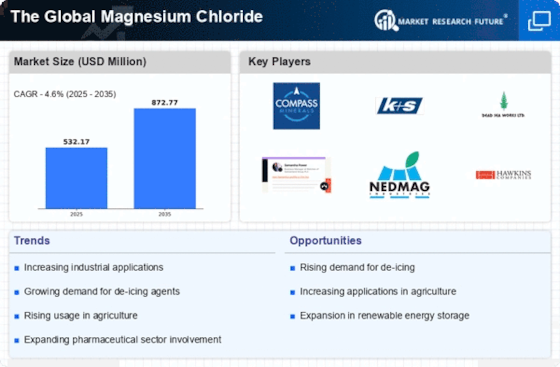
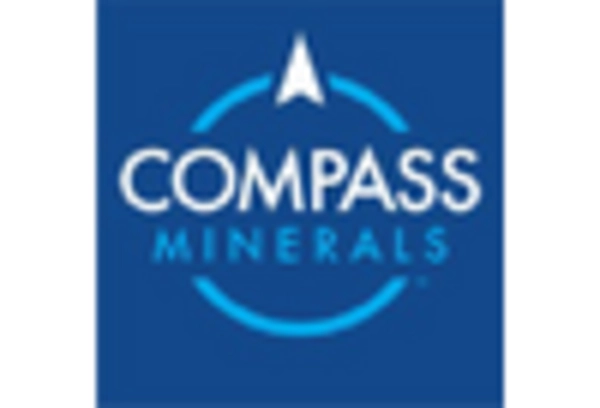
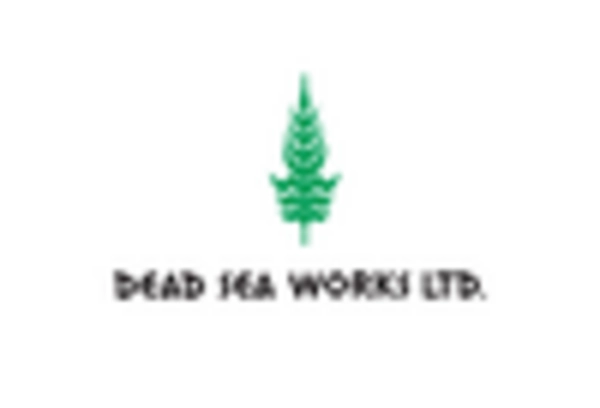
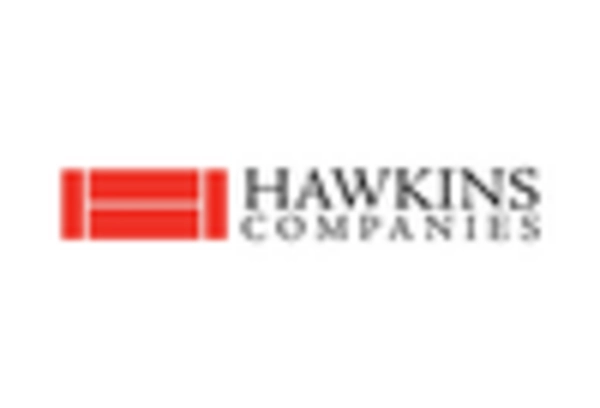
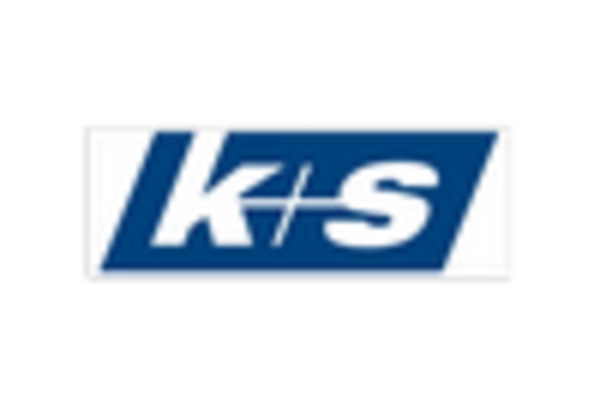
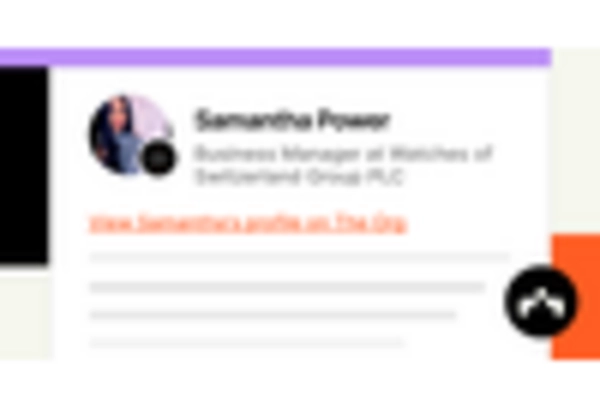
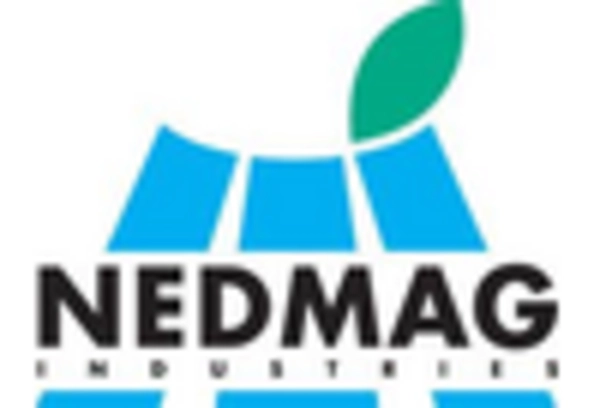









Leave a Comment